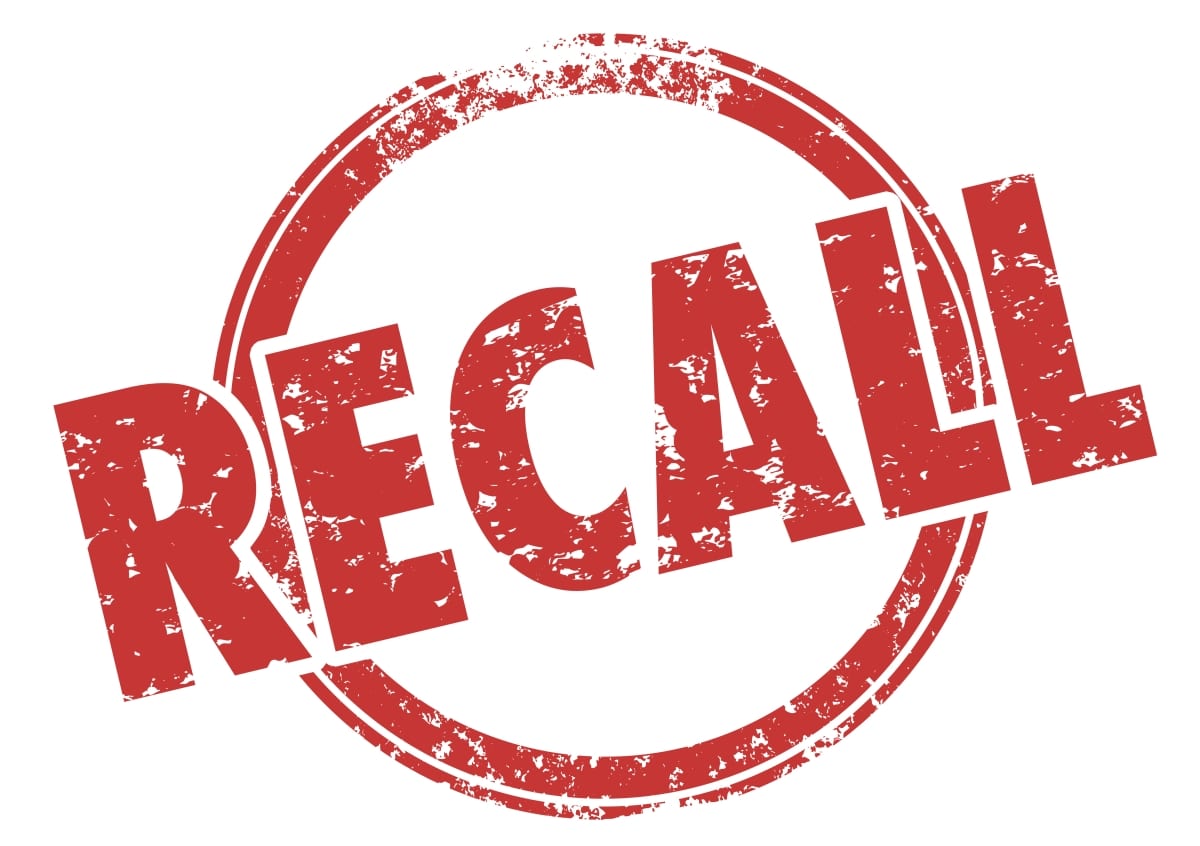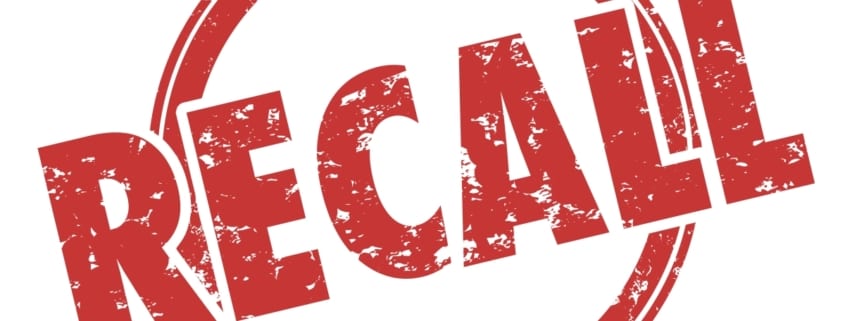How Does A Car Recall Affect Your Car Insurance?

How Does a Car Recall Affect Your Auto Insurance?
Vehicle recalls occur fairly often, some with a lot of public attention – think Takata airbags. The recall system was first implemented in 1966 with the National Traffic and Motor Safety Act and less than four years later, more than 10 million cars had been recalled.
How does a recall work?
Vehicle manufacturers are required to report a safety risk as determined by the National Highway Traffic Safety Administration (NHTSA). The auto in question must be included in a group of the same design or manufacturer. If the NHTSA investigation sees a pattern of safety risk, the manufacturer must offer the vehicle owner a refund, repairs or replacement—all at no cost to the owner.
First, the complaints
The recall process begins with complaints, either from issues discovered by the manufacturer or consumers. The NHTSA or courts can start the recall procedure. Each recall is monitored by the NHTSA.
Most common defects
Safety-related defects include:
- Loss of vehicle control due to steering mechanisms that break suddenly
- Sticking or broken accelerator controls
- Cracked or otherwise broken wheels
- Seats that fail with normal use
- Airbags that deploy when they’re not needed
- Faulty wiring or leaks that can start fires
- Car seats that create a risk of injury due to defective safety belts or other parts
Defects not considered to be related to safety include excessive oil consumption and ordinary wear of items that require regular inspection, maintenance or replacement such as brake pads.
An investigation is opened
If the NHTSA decides to open an investigation, the case is handed over to the Office of Defects Investigation (ODI). A review of consumer complaints and petitions is made to determine if the investigation is necessary. If the ODI finds that a deeper look is warranted, the reported safety defects are investigated.
The recall is issued
It is up to the NHTSA to issue a recall, and manufacturers can dispute the allegations of safety defects. If the NHTSA moves forward with a recall, it is the manufacturer’s responsibility to inform registered owners in a reasonable amount of time. For example, defective tires must be repaired or replaced within 60 days of receiving the NHTSA recall notice.
Car recall notices are generally sent out as letters. This usually results in consumers making appointments with their dealerships. Manufacturers also must also let the vehicle owners know how to get the problem corrected and are required to provide repairs free of charge, even when the auto was not purchased new at a dealership.
It is notable that dealerships are prohibited from selling a vehicle that has an open recall and car rental companies are not allowed to rent out cars that have open recalls.
What About Used Cars?
Recalls address safety issues on new as well as used vehicles. But there may be limitations to otherwise free repairs based on how old the car is.
Recall statistics
As reported by The Newswheel, a 2018 study laid out top makes and models with the highest and lowest recall rates.
Top 10: Highest Number of Recalls
- Mercedes-Benz C-Class
- GMC Sierra
- BMW 3/4 Series
- Dodge Durango
- Nissan Pathfinder
- Ram Pickup
- Toyota 4Runner
- Dodge Charger
- Chrysler 300
- Chevrolet Tahoe
Top 10: Lowest Number of Recalls
- Hyundai Accent
- Chevrolet Equinox
- Toyota Corolla
- Honda Civic
- Honda CR-V
- Honda Accord
- Subaru Crosstrek
- Toyota Camry
- Hyundai Elantra
- GMC Terrain
How to See If Your Vehicle Has Been Recalled
If you didn’t receive direct notification, which is possible in circumstances such as you bought the vehicle used, check to see it has been recalled on the NHTSA database. To do so you’ll need your vehicle identification number (VIN) on hand. Note that cars older than eight years cannot be recalled.
Don’t ignore your vehicle’s recall notice
If your auto is recalled, ignoring the situation can be dangerous, because manufacturers only issue recalls if a defect poses a risk. Given that vehicles most likely to have open recalls are commonly used by families, like minivans and SUVs, it is alarming that only about 75 percent of recalled vehicles are actually fixed (NHTSA). With the roughly 25 percent remaining that are not fixed, it’s because the owners are not aware of the recall or they choose not to fix their autos because doing so is inconvenient, according to the National Safety Commission (NSC).
Does Car Recall Affect Auto Insurance Rates?
For the most part, a recall won’t raise the insurance rates. However:
- Crash safety tests result in grades, published annually by the NHTSA, with five stars being the best possible. These grades help insurance companies determine premiums. Theoretically, a good crash safety test rating could result in lower premiums while a low rating can bring premiums up.
- Keep in mind that, if you’re in an accident after ignoring a recall notice and not fixing an issue and it turns out to have contributed to the accident, any claims you submit may be denied due to negligence.
- A car recall can raise insurance premiums down the road. This can happen if the defect impacts the auto’s safety rating. Higher safety ratings can result in lower pricing while fewer safety rating stars could mean a higher premium.
Overall, though, a car recall will have no discernable impact on your insurance rates.
What If Your Un-recalled Car Has Manufacturing Problems
If your car has safety issues but has not been recalled, have the problems fixed as soon as possible. You can also call the Department of Transportation Vehicle Safety Hotline to report the problems (call 800-424-9393 or 888-327-4236) or file your concerns with the ODI, which will investigate to determine if a recall is necessary.
Learn more
To get more information about auto recalls, visit the NHTSA recalls site. You’ll find info about recalls for vehicles, child safety seats, equipment, tires and even school buses. You can also reach out to the NHTSA recall notice email system.

 EINSURANCE
EINSURANCE EINSURANCE
EINSURANCE EINSURANCE
EINSURANCE